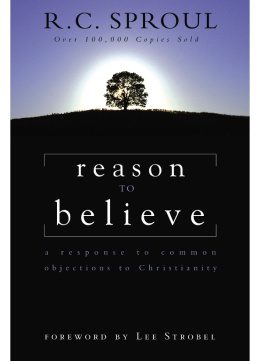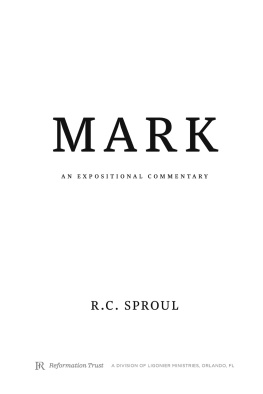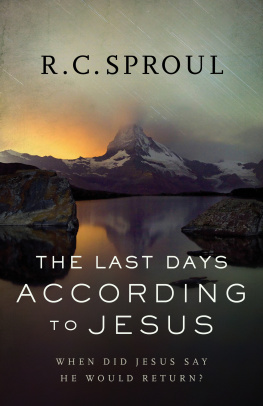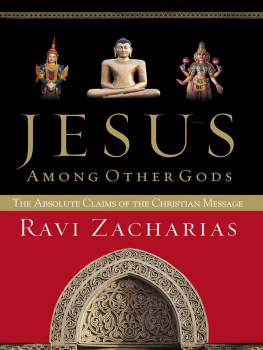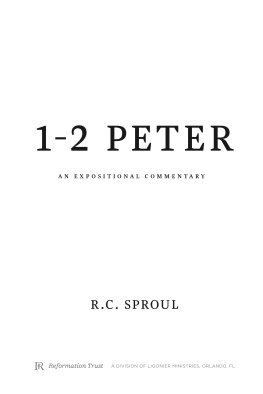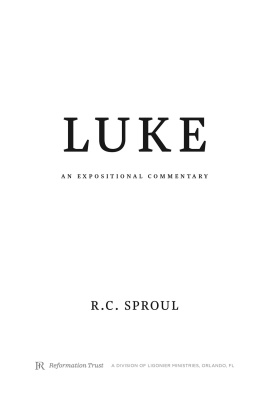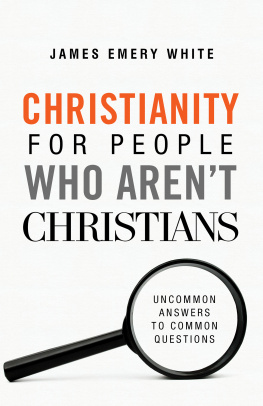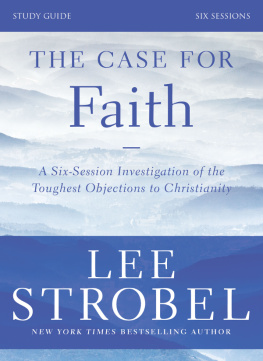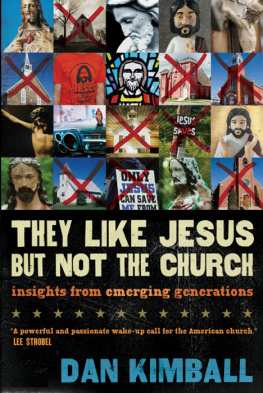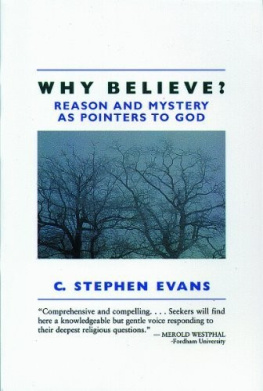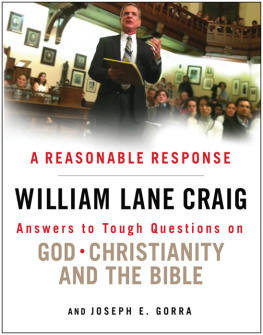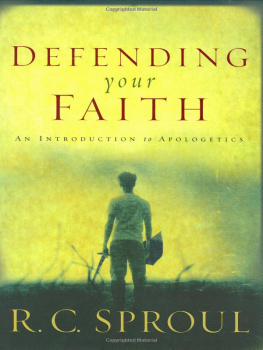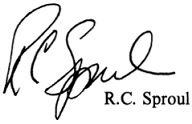Reason to Believe
Copyright 1978 by G/L Publications
All rights reserved
First Zondervan printing 1982
Requests for information should be addressed to:
Zondervan, 3900 Sparks Drive SE, Grand Rapids, MI 49546
ePub Edition September 2016: ISBN 978-0-3105-3107-4
Library of Congress Cataloging-in-Publication Data
Sproul, R. C. (Robert Charles), 1939
Reason to Believe.
Reprint. Originally published: Objections answered. Gospel Light, 1978.
Bibliography: p.
ISBN 0-310-44911-1
1. Apologetics 20th century. I. Title.
BT1102.S59 239 81-21900
AACR2
All Scripture quotations, unless otherwise indicated, are from the Revised Standard Version of the Bible, Copyright 1946, 1952 by the Division of Christian Education of the NCCC in the USA, and used by permission.
Also quoted is NASB New American Standard Bible. The Lockman Foundation 1960, 1962, 1963, 1968, 1971. Used by permission.
All rights reserved. No part of this publication may be reproduced, stored in a retrieval system, or transmitted in any form or by any means electronic, mechanical, photocopy, recording, or any other except for brief quotations in printed reviews, without the prior permission of the publisher.
contents
introduction
A Personal Pilgrimage
chapter one
The Bible Contradicts Itself. Its Just a Fairy Tale.
chapter two
All Religions Are Good. It Doesnt Matter What You Believe.
chapter three
What About the Poor Native Who Never Heard of Christ?
chapter four
Christianity Is a Crutch for Weak People.
chapter five
The Church Is Full of Hypocrites.
chapter six
I Dont Need Religion.
chapter seven
There Is No God!
chapter eight
If There Is a God Why Is There So Much Evil in the World?
chapter nine
Why Does God Allow Suffering?
chapter ten
When Youre Dead Youre Dead! There Is No More!
Ill admit it: I was a spiritual skeptic for much of my life.
I thought Christians were gullible people who had fallen prey to their own wishful thinking. Had not Freud and Marx and Darwin successfully dismantled the foundation of Christianity? Certainly if Christians could learn to apply a little common sense, they would see that their faith is riddled with irrationality.
Or so I thought.
Then I was prompted by my wifes conversion to begin checking out Christianity in a systematic way. I used my journalistic and legal training to investigate whether there was, indeed, any truth to the Christian claims.
This book, under an earlier title, was one of the first I read, and it stunned me. It provided reasoned responses to some of the exact objections I was raising. And it defended the Christian faith with a compelling logic that helped destroy my image of Christians as being intellectual weaklings. In a very real sense, God used it to propel me toward the truth about Him.
Today I am a follower of Jesus Christ. In my role as an evangelist I often give skeptics this same book. Take a look at this, I tell them, and then lets talk. I also recommend the book to Christians, saying, Here is a great way to follow 1 Peter 3:15 by preparing yourself to respond to questions about the faith.
Years after I became a Christian, I had an opportunity to meet R. C. Sproul, and I wholeheartedly thanked him for writing such a powerful and persuasive book. And I believe that after you read Reason to Believewhether you are a spiritual skeptic whose questions are keeping you from God or a Christian who wants to prepare yourself for evangelistic encountersyou are going to want to thank him, too.
Lee Strobel
Willow Creek Community Church
September 1993
The Christian faith has never been without its critics. Criticisms from every source have been leveled against Christianity since its inception. It is remarkable that after experiencing almost 2,000 years of such criticism the Christian faith continues to thrive as a viable life and world view. Philosophies and alternate religious systems that have sought to supplant Christianity have come and gone. Current philosophical isms tend to have a very short life span. Yet classic objections to Christianity continue to be raised. Some of the objections are raised in a spirit of prejudice and hostility. Others are raised out of a genuine attempt to resolve very perplexing issues and mysteries.
The purpose of this book is not to provide a technical study in the science of apologetics, which science is designed to give a comprehensive defense of the intellectual credibility of Christianity. Rather this book is designed for laymen; to offer basic answers to the most common and frequent objections that are raised about Christianity. This book treats matters that range from such philosophical questions as the problem of evil to the very practical and personal frustrations that people encounter when confronted by hypocrisy. Ultimately it is the hope of the author that students and critics of the Christian faith would direct their attention to the Scriptures of the Old and New Testaments in a serious attempt to discover answers within its pages to the questions of life.
I hope this book will serve as an introduction and springboard to more in-depth examinations of the problems that are discussed. The Christian must always be prepared to give honest answers to honest questions. Flights into private preference of belief or irrational assertions of dogmatism bring no honor to Christ. It is our responsibility to give a reason for the hope that lies within us. (See 1 Pet. 3:15.)
Special thanks are offered to the man to whom this book is dedicated, Archie Parrish. It was out of his concern to answer questions people raised in discussion about the Christian faith that this work was prompted. Through his ministry of training laymen for evangelism the need for such a basic training guide was established. The list of questions dealt with have been supplied by laymen involved with Mr. Parrishs ministry. I particularly hope that these laymen will find thisvolume helpful.
I must express gratitude for the assistance rendered by Mr. Stuart Boehmig, Mrs. Alane Barron, and Miss Mary Semach who helped with the preparation of the manuscript.
The quest for the meaning of life was a troublesome problem for me from an early age. The why questions were the ones that gripped my mindriot so much physical questions but metaphysical questions. Many children are fascinated by how things work. They may even pester their parents with questions like, What makes a car run? How does a clock work? How does a seed turn into a flower? I had childhood friends like that, forever tinkering with cars and lawnmowers and skeletons. Some became engineers, some doctors, one a geologist and one a physicist. But I was bored with those questions. I knew they were very important questions, but they simply were not the ones on my mind.
As a youth I had two consuming passions. One was sports and the other the why questions. I saw no relationship between them at the time but in present reflection I think I can see how they fit together in my own circumstances.

